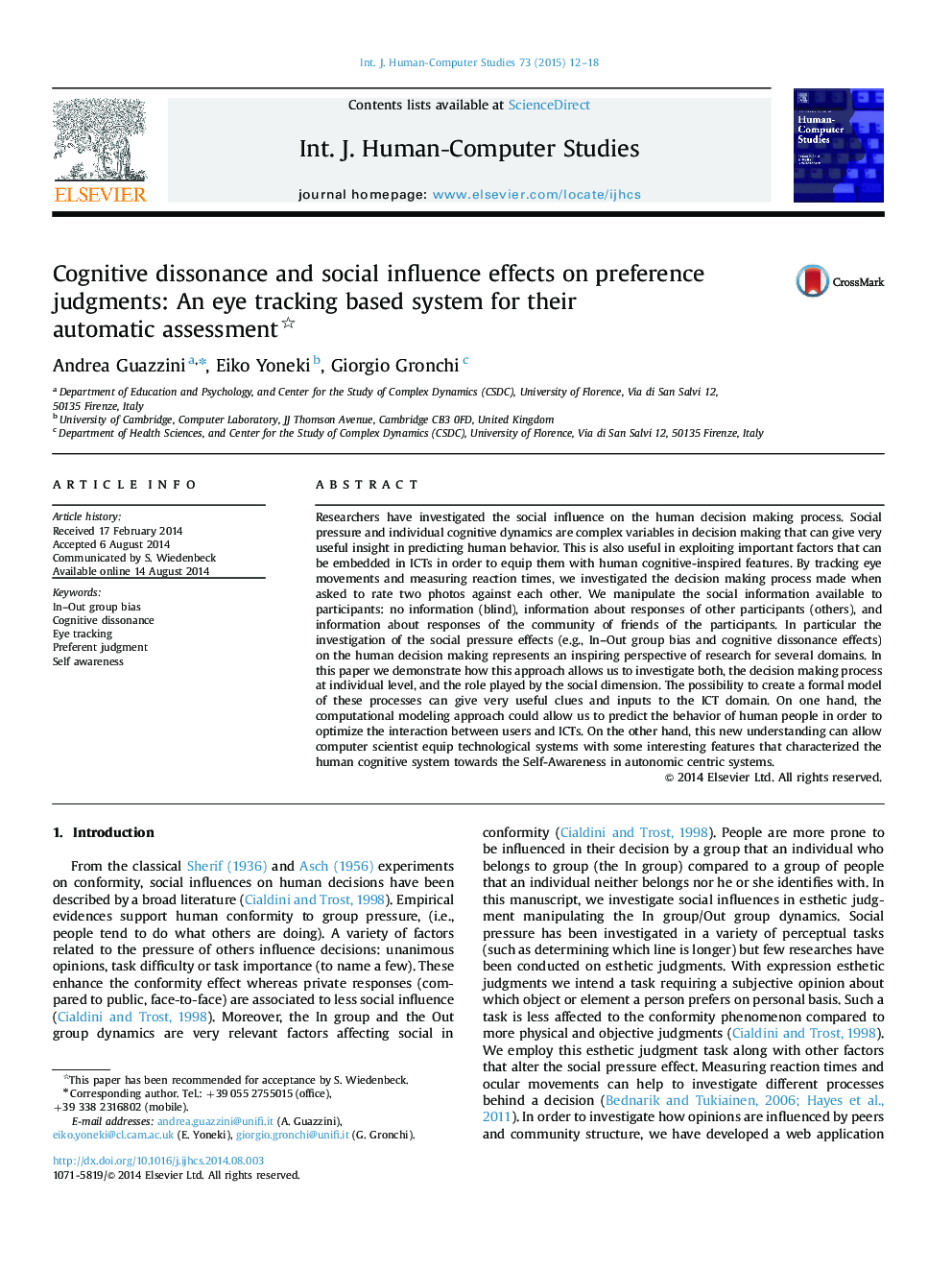| کد مقاله | کد نشریه | سال انتشار | مقاله انگلیسی | نسخه تمام متن |
|---|---|---|---|---|
| 401137 | 1438980 | 2015 | 7 صفحه PDF | دانلود رایگان |
• Eye tracking can distinguish between cognitive dissonance and social influence.
• Three seconds are sufficient to reveal preference judgment in social problem solving.
• Insights in self-aware ICT through interpolation of different cognitive processes.
Researchers have investigated the social influence on the human decision making process. Social pressure and individual cognitive dynamics are complex variables in decision making that can give very useful insight in predicting human behavior. This is also useful in exploiting important factors that can be embedded in ICTs in order to equip them with human cognitive-inspired features. By tracking eye movements and measuring reaction times, we investigated the decision making process made when asked to rate two photos against each other. We manipulate the social information available to participants: no information (blind), information about responses of other participants (others), and information about responses of the community of friends of the participants. In particular the investigation of the social pressure effects (e.g., In–Out group bias and cognitive dissonance effects) on the human decision making represents an inspiring perspective of research for several domains. In this paper we demonstrate how this approach allows us to investigate both, the decision making process at individual level, and the role played by the social dimension. The possibility to create a formal model of these processes can give very useful clues and inputs to the ICT domain. On one hand, the computational modeling approach could allow us to predict the behavior of human people in order to optimize the interaction between users and ICTs. On the other hand, this new understanding can allow computer scientist equip technological systems with some interesting features that characterized the human cognitive system towards the Self-Awareness in autonomic centric systems.
Journal: International Journal of Human-Computer Studies - Volume 73, January 2015, Pages 12–18
